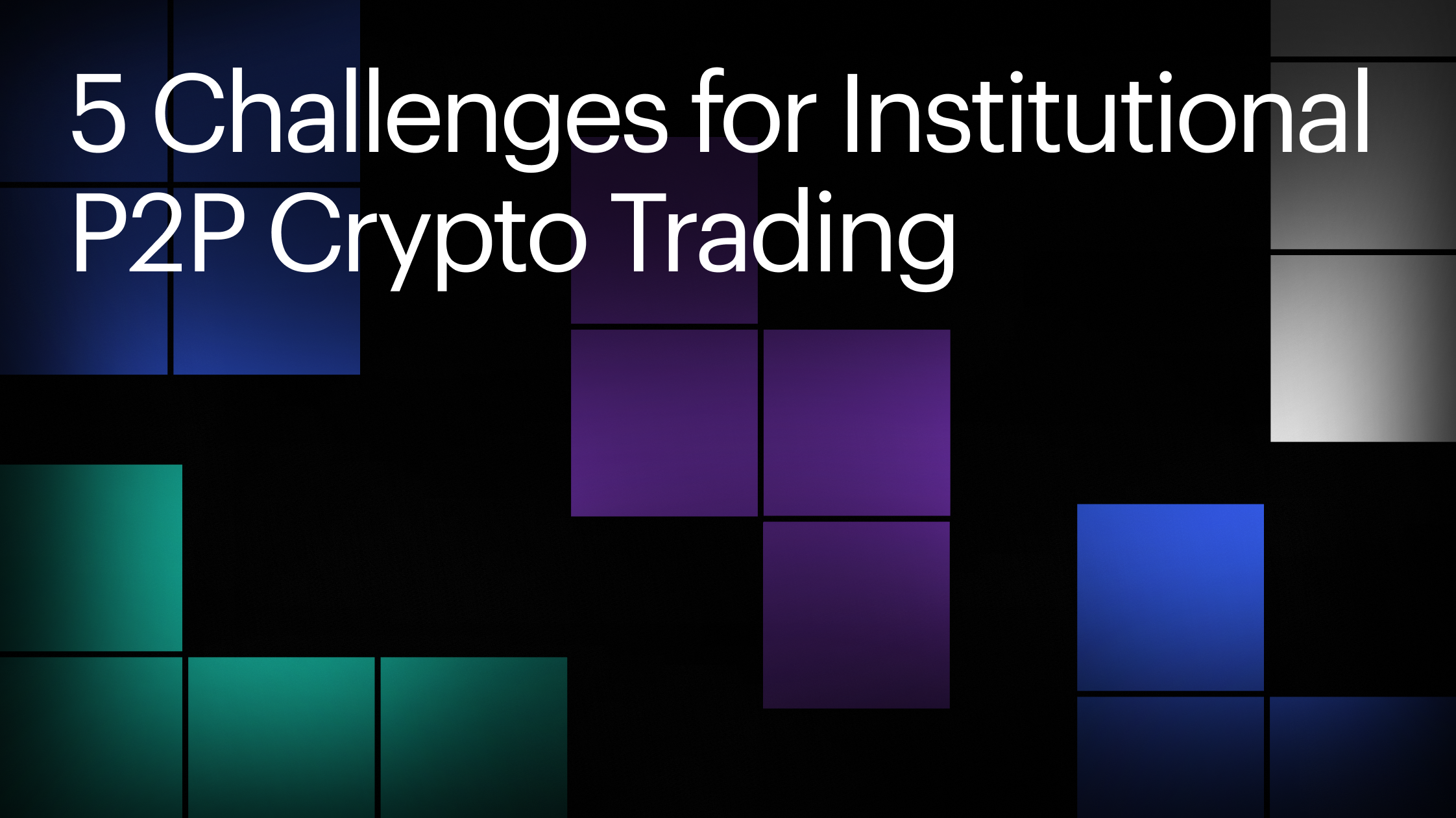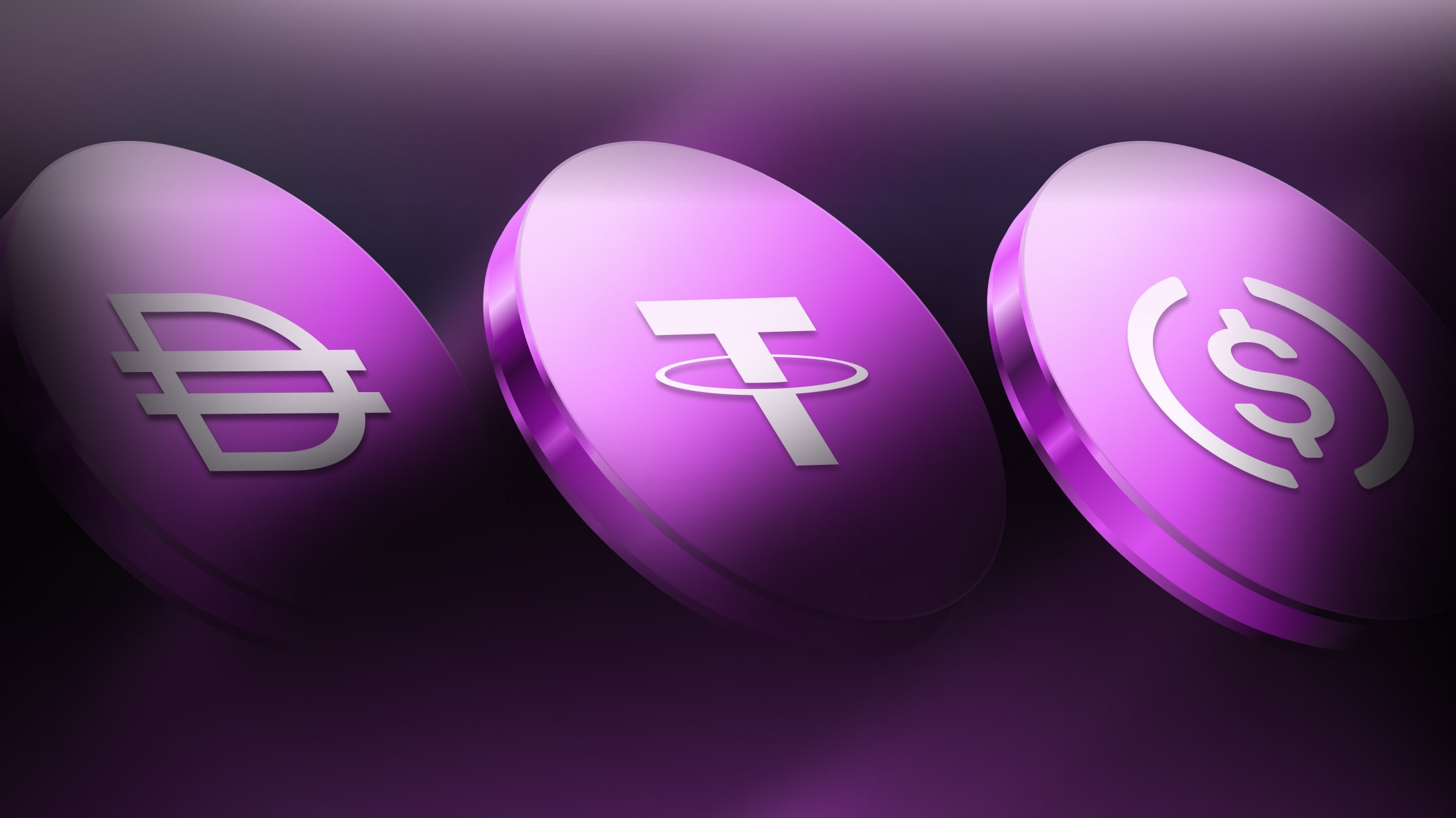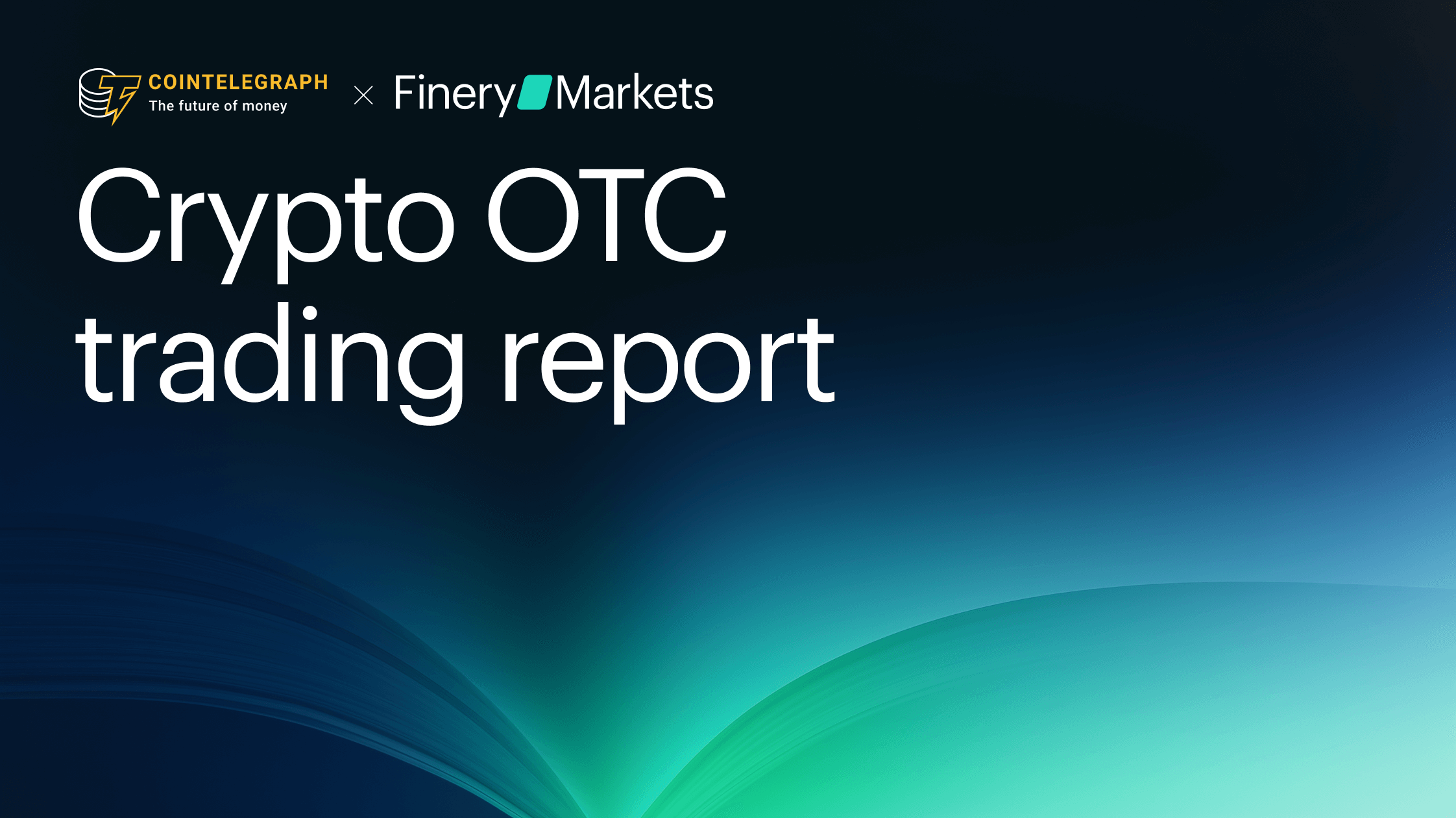
Peer-to-peer (P2P) trading marks a significant shift in the landscape of financial transactions, embodying the ethos of decentralization. It represents an innovative approach to crypto trading, allowing users to engage in the exchange of digital assets directly, without the need for an intervening third party. This article aims to delve deeper into the concept of P2P crypto trading, its potential benefits for institutional market players, and the challenges they face, offering insights into how Finery Markets is poised to enhance the experience of institutional P2P crypto trading.
P2P trading was a principle rooted in the creation of the very first cryptocurrency - Bitcoin. It sought to build a system where network participants could freely engage in transactions, unimpeded by external control or intermediaries, in the true spirit of decentralization. This system relies on the underlying technology of blockchain, leveraging it to maintain transparency and ensure secure transactions.
In the wake of several challenges facing the global financial industry, such as inflation, rising interest rates, and notable events like the crypto market crash catalyzed by the 2022 blow-up of Terra (LUNA), Celsius, and FTX, P2P crypto trading, as a segment of Decentralized Finance (DeFi), offers potential alternative solutions. Decentralized exchanges (DEXs), a significant byproduct of DeFi, have the capacity not just to eliminate costly intermediaries, but also democratize access to financial systems for billions worldwide. Research suggests that the DeFi market could surge to approximately half a trillion dollars by 2028, signifying its potential for growth and influence in the financial sector.
Despite the potential upsides, DEXs pose several challenges that need to be addressed before they can be widely adopted for large-scale institutional trading. The decentralized nature of these exchanges introduces issues such as regulatory ambiguity, inefficient trading operations, user experience difficulties, and security concerns. These challenges can be substantial barriers to institutional investors interested in navigating the promising waters of P2P crypto trading.
In the following sections, we will dive deeper into the benefits and challenges of institutional P2P crypto trading, explore ways to navigate these hurdles and elucidate the role of Finery Markets in shaping this new frontier of trading.
Benefits of Institutional P2P Crypto Trading
The shift towards P2P crypto trading within institutional circles is not without reason. The transformative advantages this trading model offers have led to its widespread adoption among traditional financial institutions.
Elimination of Intermediaries
With P2P trading, the role of intermediaries in transaction confirmations becomes redundant. This streamlining of the process not only reduces trading fees but also speeds up transaction times. Institutions benefit significantly from this cost-effectiveness and efficiency, swiftly meeting their business goals.
Global Access
Institutional P2P crypto trading unlocks a global marketplace of crypto assets for institutions. Eliminating geographical constraints allows these entities to trade with a diverse pool of participants from around the globe. This broad spectrum of trading opportunities helps institutions build a more balanced, risk-managed portfolio.
Transparency
The blockchain, the fundamental technology behind crypto trading, ensures unparalleled transparency. With each transaction recorded on an immutable ledger and open for verification, institutional investors can enjoy a clear view of their trading history and trends. This transparency fuels trust, a crucial factor in the trading world.
Flexibility
Unlike traditional exchanges that are often limited to popular cryptocurrencies, P2P crypto trading platforms offer institutions the flexibility to trade a wide array of digital assets. This means institutions can choose from an extensive selection of crypto assets, regardless of their market cap or exchange rates.
24/7 Market Access
Unlike traditional financial markets that operate on set schedules, the crypto market never sleeps. Institutional investors can trade cryptocurrencies around the clock, allowing for optimal response time to market movements. This 24/7 market access allows institutions to take advantage of price fluctuations at any given moment, a luxury unavailable in traditional trading.
These benefits underscore the value proposition of institutional P2P crypto trading. It’s an approach that emphasizes secure transactions, flexibility, and efficiency, all of which are essential for institutions striving to achieve higher returns on their investments.
Key Challenges for Institutional P2P Crypto Trading
While P2P crypto trading has its advantages, institutional investors also face several obstacles when it comes to the adoption of these decentralized exchange markets. Some of the key challenges include:
Lack of Regulatory Clarity
The decentralized nature of P2P crypto trading, free from any central authority, has created a complex regulatory environment. This absence of a regulatory framework often leads to legal uncertainties that dissuade traditional financial institutions from engaging in P2P crypto trading.
Inefficient Trading Operations
Traditional trading systems may not be optimized for the unique characteristics of crypto markets. For instance, most decentralized exchanges (DEXs) relying on a decentralized liquidity pool model are designed for basic buy/sell orders and lack the functionality for advanced trading strategies such as margin trading or stop-loss orders. These operational inefficiencies can result in miner front-running, Maximum Extractable Value (MEV), and sandwich attacks, further complicating the trading process and reducing trading execution quality.
Poor User Experience
Despite the growth of DEXs, the user experience remains a significant barrier to adoption. Trading on these platforms can be complicated and prone to human error due to a lack of intuitiveness. A notable example of such user error occurred on May 8, 2023, when a trader mistakenly made an expensive error with ETH fees. The trader paid a staggering 64 ETH for a single transaction. According to an update from the blockchain tracker, ‘Whale Alert,’ the user paid around $119,157 just to send 84 WETH. This incident underscores the importance of a user-friendly interface in encouraging the broader adoption of DEXs.
Limited Liquidity
Depending on the crypto asset and the specific platform, there can be liquidity constraints. Such limitations can affect the market price of an asset and restrict institutions' ability to execute large-volume trades efficiently, thus impacting their business goals.
Counterparty Risks
The absence of a centralized authority can lead to increased counterparty risk. Without a central authority to monitor and regulate, there can be increased risks for fraud. It’s no secret that a major part of tokens traded on DEXs are either scams or possess large insider allocations, leading to risks such as 'rug pulling,' where founders abscond with user funds.
Security Threats
The cyber security measures within the crypto space are a vital concern for institutions. Hacks in recent years have resulted in losses of billions of dollars, making security a significant hurdle to institutional adoption. In the past year alone, a Chainalysis report estimates $1.7 billion was stolen from DeFi protocols. Bridging protocols in DApps pose particular vulnerabilities, demanding robust security measures to protect user funds.
These challenges underline the complexity of institutional P2P crypto trading, with areas that need to be addressed for more widespread adoption among traditional financial institutions. However, while the challenges are significant, they are not insurmountable. With the right strategies and solutions, these challenges can be mitigated, opening up a world of opportunities in the institutional P2P crypto trading space.
Addressing the Gap: 5 Paths Forward
Institutional engagement in the crypto sphere is poised to grow exponentially, but several obstacles hinder this progress. Overcoming these challenges is crucial for the maturation and widespread acceptance of P2P crypto trading among institutional players. By focusing on five key areas, crypto trading platforms can significantly improve their appeal to institutions and facilitate a more seamless integration of P2P trading into their financial strategies.
Market Defragmentation and Adding Cross-Chain Support
Limited scalability and a lack of interoperability prevent network effects from taking root. One of the primary ways to address liquidity issues and increase the range of available digital assets for trading is market defragmentation through the appearance of institutional-grade prime brokerage and custody solutions and the incorporation of cross-chain support. Cross-chain technology allows transactions between different blockchain networks, effectively connecting previously isolated crypto assets. With this feature, institutional P2P crypto trading can witness a surge in activity due to an expanded marketplace and greater opportunities for diversification. Enhanced liquidity can result in more efficient price discovery, reduced market manipulation, and better trade execution, all critical factors in institutional decision-making.
Customizable Functionalities for Institutional Needs
Institutional investors often require a higher degree of sophistication and specific needs compared to retail investors. As such, P2P platforms can bolster their appeal by incorporating customizable functionalities tailored for institutions. This could include advanced trading options, detailed analytics, algorithmic trading bots, and portfolio management tools. Such features can significantly improve the trading operations of these institutions, making the user interface more intuitive and conducive for their trading strategies.
Regulatory-Compliant Protocols
Despite the decentralized nature of crypto exchanges, compliance with regional and international regulations is imperative for institutional adoption. P2P platforms should thus work proactively with regulators to design protocols that adhere to compliance standards. This could include mechanisms for identity verification, anti-money laundering (AML), and Know Your Customer (KYC) regulations. Such efforts mitigate the risk of legal issues and build trust among institutional players, encouraging them to participate in the crypto market more freely.
Prioritizing Client Support
Robust client support is crucial in navigating the complex landscape of crypto trading. Institutions typically require swift response times and comprehensive assistance due to the scale of their operations. Prioritizing client support, providing access to expert guidance, and creating an environment that emphasizes customer satisfaction can make a substantial difference in attracting and retaining institutional investors. This approach enhances the user experience, making it easier for institutions to integrate P2P crypto trading into their operations.
Ensuring a Low-Cost Trading Environment
Cost efficiency is a major concern for institutions engaged in crypto trading. High total trading costs can eat into profit margins, making P2P crypto trading less appealing. Therefore, platforms should strive to ensure a low-cost trading environment. Offering competitive transaction fees, improving execution quality with better spreads, lowering withdrawal costs, and providing cost-effective trading tools can all contribute to making P2P crypto trading an attractive proposition for institutions. The resulting cost savings can be substantial over time, further incentivizing institutions to take part in the P2P crypto market.
The Role of Finery Markets In P2P Crypto Trading
At Finery Markets, we're committed to helping institutions overcome these hurdles. The full suite of Finery Markets products caters to institutional needs:
FM Space assists in selecting a counterparty and connects crypto businesses and institutions with global crypto liquidity providers.
FM Pulse is a user-friendly analytical tool for analyzing effective spreads across leading trading venues.
FM Marketplace is a non-custodial institutional P2P trading solution with advanced functionality, including:
-
Price intelligence and pre-trade risk management tools
-
Position management, risk controls, compliant reporting tools, and cost analysis
-
Partial pre-funding and flexible post-trade settlement across multiple blockchain networks
-
Aggregated order book with firm quotes from global liquidity providers, accessible via API and GUI
-
A robust tech stack with 99.99% uptime and full automation
FM Liquidity Match is a gateway to P2P trading infrastructure for prime brokers, brokers, liquidity providers, and OTC desks. FM Liquidity Match aids any institutional client-facing business to simplify trade cycle management with a fully electronic single access point solution. It leverages all the technologies behind FM Marketplace, allowing institutions to resell liquidity from global liquidity providers, create a proprietary liquidity pool, and internalize customer flows.
Our solutions offer advanced functionalities, robust "white-glove" client support, and a cost-effective trading environment thanks to fee transparency and best execution.
In a rapidly changing digital assets landscape, institutional investors are increasingly seeking efficient, transparent, and secure trading operations. At Finery Markets, we are actively developing innovative solutions to enhance the efficiency and ease of institutional crypto trading. Embracing this today positions institutions ahead of the curve, providing them a strategic advantage in the emerging digital economy.
Finery Markets CEO, Konstantin Shulga
Conclusions
While the challenges are significant, they're not insurmountable. With proactive measures from trading platforms and an evolving regulatory landscape, institutional P2P crypto trading is poised to play an increasing role in the financial market. The journey may be complex, but the potential rewards make it a venture worth pursuing.

























